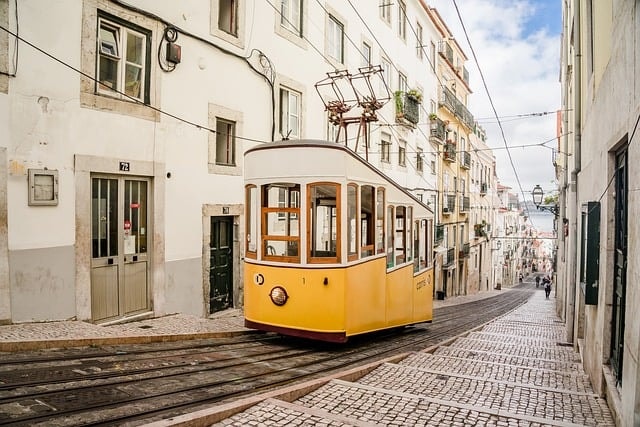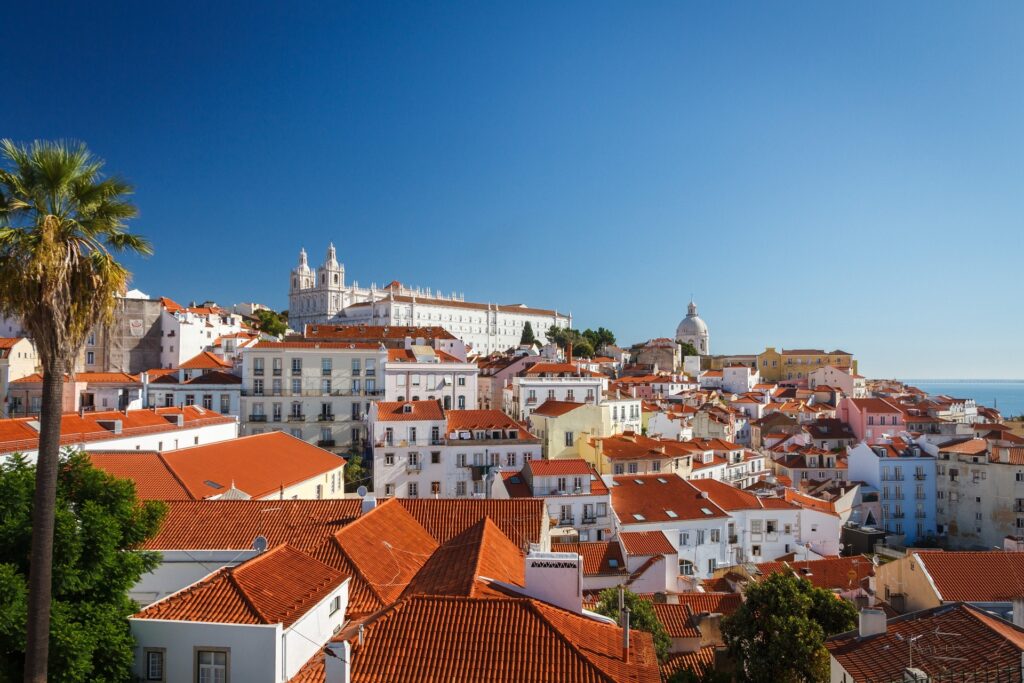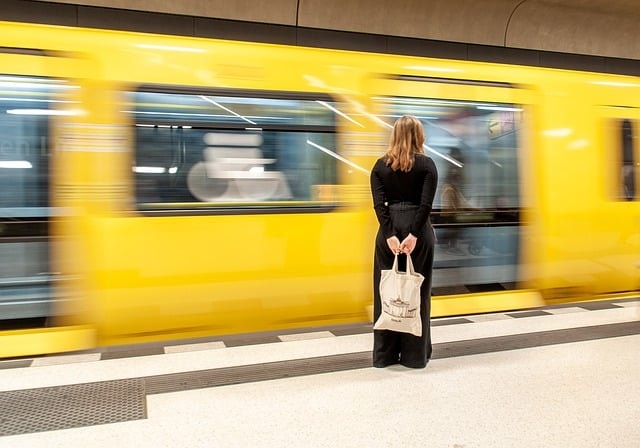Understanding Portuguese Visas

Portugal offers various visa options for non-EU citizens, including the Portugal D2 Visa for entrepreneurs, the Portugal D7 Visa for individuals with passive income, and the D8 Visa Portugal for remote workers with active income.
Each visa has its own set of requirements and benefits, and choosing the right one depends on individual circumstances.
Understanding the different types of Portuguese visas is essential for a smooth application process.
Temporary Stay Visa
A temporary stay visa allows non-EU citizens to stay in Portugal for up to one year.
This visa is ideal for digital nomads who want to experience the Portuguese lifestyle and culture without committing to long-term residency.
The temporary stay visa can be renewed for an additional two years.
Residence Permit
A residence permit is a long-term visa that allows non-EU citizens to live and work in Portugal for up to five years.
This visa is ideal for individuals who want to establish a life in Portugal and potentially apply for Portuguese citizenship.
The residence permit can be renewed for an additional three years.
D2 Visa: Entrepreneur Visa

The D2 Visa is designed for entrepreneurs who want to start a business in Portugal and move there to become resident, you must stay more than 183 days a year in Portugal & therefore pay taxes.
This visa requires a solid business plan and proof of financial resources.It is the most difficult Visa to acquire as your business plan must be solid, robust and fully funded.
The D2 Visa is a great option for entrepreneurs who want to establish a business in Portugal and potentially apply for Portuguese citizenship.
Passive Income Visa (D7)
The Passive Income Visa (D7) is designed for individuals who have a steady passive income.Passive income could be rental income from property in another country, dividends from company investments, Pensions ( such as a state/ government pension or private pension) and other such regular incomes. However they must still be in excess of the Portugal minimum income requirement.
This visa requires proof of financial resources and a valid passport.
The Passive Income Visa (D7) is a great option for individuals who want to retire in Portugal or live off their passive income.
Digital Nomad Visa (D8)

The Portugal Digital Nomad Visa (D8) is designed for remote workers who want to live and work in Portugal, offering numerous benefits for remote workers.
This visa requires a minimum income of 4 x the minimum Portuguese income per month and a valid passport. Recently the Non-Habitual Resident ( NHR) program was halted, however it is expected that the Government will relaunch the program however its likely to be modified significantly.
The Digital Nomad Visa (D8) is a great option for digital nomads who want to experience the Portuguese lifestyle and culture while maintaining their remote work lifestyle.
Income Requirements for Portuguese Visas
The income requirements for Portuguese visas vary depending on the type of visa.
The Digital Nomad Visa (D8) requires a minimum monthly income of €3,280. This income requirement is based on multiples of the Portuguese minimum wage.
The D2 Visa requires proof of financial resources and a solid business plan.
Family Reunification

Family reunification is possible with all Portuguese visas.
Spouses and dependent children can join the main applicant in Portugal.
Family reunification requires proof of relationship and financial resources.
Tax Implications for Digital Nomads

Digital nomads in Portugal are subject to income tax.
The tax rate for digital nomads in Portugal is 20% for income earned in Portugal.
Digital nomads may also be subject to tax in their home country.
Cost of Living in Portugal
The cost of living in Portugal is relatively low compared to other Western European countries, its cheaper generally than France but more expensive in some aspects than Spain. Generally speaking costs are lower the further you are away from the tourist/western hot spots.
Rent, food, and transportation costs are affordable. However in the major cities costs have risen substantially over recent years due to inflation & high demand. Housing in particular is in short supply and costs have risen sharply.
The cost of living in Portugal varies depending on the region and lifestyle.
Popular Cities for Digital Nomads

Lisbon is a popular city for digital nomads due to its vibrant culture and coworking spaces. Lisbon is packed with bars, restaurants, theatres & nightlife.
Porto is another popular city for digital nomads due to its affordable cost of living and rich culture.
The Algarve region is also popular for digital nomads due to its beautiful beaches and relaxed lifestyle. Although some parts of the Algarve, mainly towards the East can be expensive, for example the Golden Triangle around Val de Lobo is extremely expensive.
Coworking Spaces for Digital Nomads
Lisbon has a variety of coworking spaces for digital nomads both inside the city and surrounding suburbs.
Porto also has a growing number of coworking spaces.
The Algarve region has coworking spaces in popular towns like Lagos, and Albufeira.
Opening a Portuguese Bank Account

Opening a Portuguese bank account is essential for digital nomads.
A Portuguese bank account is required for receiving payments and paying bills.
Opening a Portuguese bank account requires proof of address and identification.
NIF Number in Portugal
A NIF number is required for tax purposes in Portugal.
A NIF number is also required for opening a Portuguese bank account.
Applying for a NIF number requires proof of address and identification.
Health Insurance Coverage

Health insurance coverage is required for all Portuguese visas applications.
Digital nomads can choose from a variety of health insurance providers.
Health insurance coverage is essential for accessing Portugal’s healthcare system. However once your Visa is issued you can use the state system if you wish.
Visa Application Process

The visa application process varies depending on the type of visa.
The Digital Nomad Visa (D8) application process typically takes 60-180 days.
The D2 Visa application process typically takes 180 days plus. This is why you should engage with a reputable law firm who can structure and apply for the D2
Applicants can submit their applications and supporting documents at the Portuguese consulate.
Registering as a Resident
Registering as a resident in Portugal is required for all visa holders.
Registering as a resident requires proof of address and identification.
Registering as a resident is essential for accessing Portugal’s healthcare system and education system.
Pathway to EU Citizenship

Portugal offers a pathway to EU citizenship for non-EU citizens, including those from outside the European Union who meet specific requirements.
The pathway to EU citizenship requires five years of residency in Portugal, during which individuals can apply for various visas, such as the D2 and D8 visas, that serve as pathways to permanent residency.
The pathway to EU citizenship requires passing a language test (A2 level) and having a clean criminal record.
Cultural Adaptation and Language

Portugal is a culturally rich and diverse country, and adapting to the local culture can be a rewarding experience for digital nomads. While Portuguese is the official language, you’ll find that many locals, especially in the service industry, speak English fluently. However, learning some basic Portuguese phrases can significantly enhance your experience and help you integrate more smoothly into the community.
Digital nomads can take advantage of language courses and cultural adaptation programs offered by various organizations in Portugal. These programs can help you learn the language, understand local customs, and feel more at home. Some popular language schools in Portugal include:
Instituto Camões: With branches in Lisbon and Porto, this school offers comprehensive Portuguese language courses for foreigners.
Portuguese Language School: Located in Lisbon, this school provides courses for all levels, from beginners to advanced learners.
Language Studies International: This school has branches in Lisbon and Porto and offers a range of Portuguese language courses tailored to foreigners.
By immersing yourself in the language and culture, you’ll find it easier to navigate daily life and build meaningful connections with locals.
Education Opportunities for Families
Portugal boasts a high-quality education system, making it an excellent destination for digital nomads with families. The country offers a well-regarded public education system, and there are numerous international schools that provide programs in English, catering to the needs of expat families.
Some popular international schools in Portugal include:
International Christian School of Cascais: Located in Cascais, this private international school offers a curriculum in English.
St. Julian’s School: Situated in Carcavelos, this private international school provides a comprehensive education in English.
Oporto British School: Based in Porto, this private international school offers programs in English and follows the British curriculum.
In addition to traditional schooling, digital nomads can explore online education platforms and homeschooling programs that cater to expat families. These options provide flexibility and ensure that children receive a quality education while living abroad.
Public Transportation in Portugal

Portugal has a well-developed public transportation system, making it easy for digital nomads to get around the country. The comprehensive network of buses, trains, and metro lines connects major cities and towns, providing convenient and affordable travel options.
Some popular public transportation options in Portugal include:
Metro: Major cities like Lisbon and Porto have efficient metro systems that connect various parts of the city.
Bus: A network of buses operates throughout the country, connecting cities, towns, and rural areas.
Train: Portugal’s train network offers reliable and comfortable travel between major cities and regions.
For added convenience, digital nomads can purchase a rechargeable “Viva Viagem” card, which can be used to pay for fares on public transportation. This card simplifies travel and can be easily topped up at various locations.
Legal Assistance for Visa Applications
Navigating the visa application process can be complex, and digital nomads may benefit from legal assistance to ensure a smooth experience. Several law firms and immigration consultants in Portugal specialize in helping expats with their visa applications.
Some popular law firms and immigration consultants include:

-
- E! Eimigrante.PT Immigration Advisory Services. This firm has 10 years of experience dealing with all visa application, Gilda Pereira is the founder & CEO
Additionally, digital nomads can seek advice from the Portuguese Immigration and Borders Service (AIMA) or the Portuguese Embassy or Consulate in their home country. These resources can provide valuable information and support throughout the visa application process.
Networking Opportunities for Expats
Portugal has a thriving expat community, offering numerous networking opportunities for digital nomads to connect with like-minded individuals. Various expat groups and organizations host events, social gatherings, and community activities, making it easy to build a supportive network.
Some popular expat groups and organizations in Portugal include:
Expats in Portugal: A Facebook group that offers networking opportunities and community activities for expats.
Portugal Expats: Another active Facebook group that provides a platform for expats to connect and share experiences.
InterNations Portugal: A global expat community that organizes networking events and community activities for expats in Portugal.

Digital nomads can also attend events and conferences organized by various organizations, such as the Portugal Startup Scene and the Lisbon Entrepreneurship Week. These events provide valuable opportunities to network, share knowledge, and collaborate with other professionals.
By engaging with the expat community and participating in networking events, digital nomads can build a strong support system and make the most of their time in Portugal.
Frequently Asked Questions
What is the minimum income required for the Digital Nomad Visa (D8)?
-
-
- The minimum income required for the Digital Nomad Visa (D8) is 4 x the minimum income requirement per month.
-
Can I bring my family to Portugal with the Digital Nomad Visa (D8)?
-
-
-
- Yes, spouses and dependent children can join the main applicant in Portugal.
-
-
How long does the visa application process take?
-
-
-
- The visa application process typically takes 60-120 days for the Digital Nomad Visa (D8) and 180plus days for the D2 Visa.
-
-
